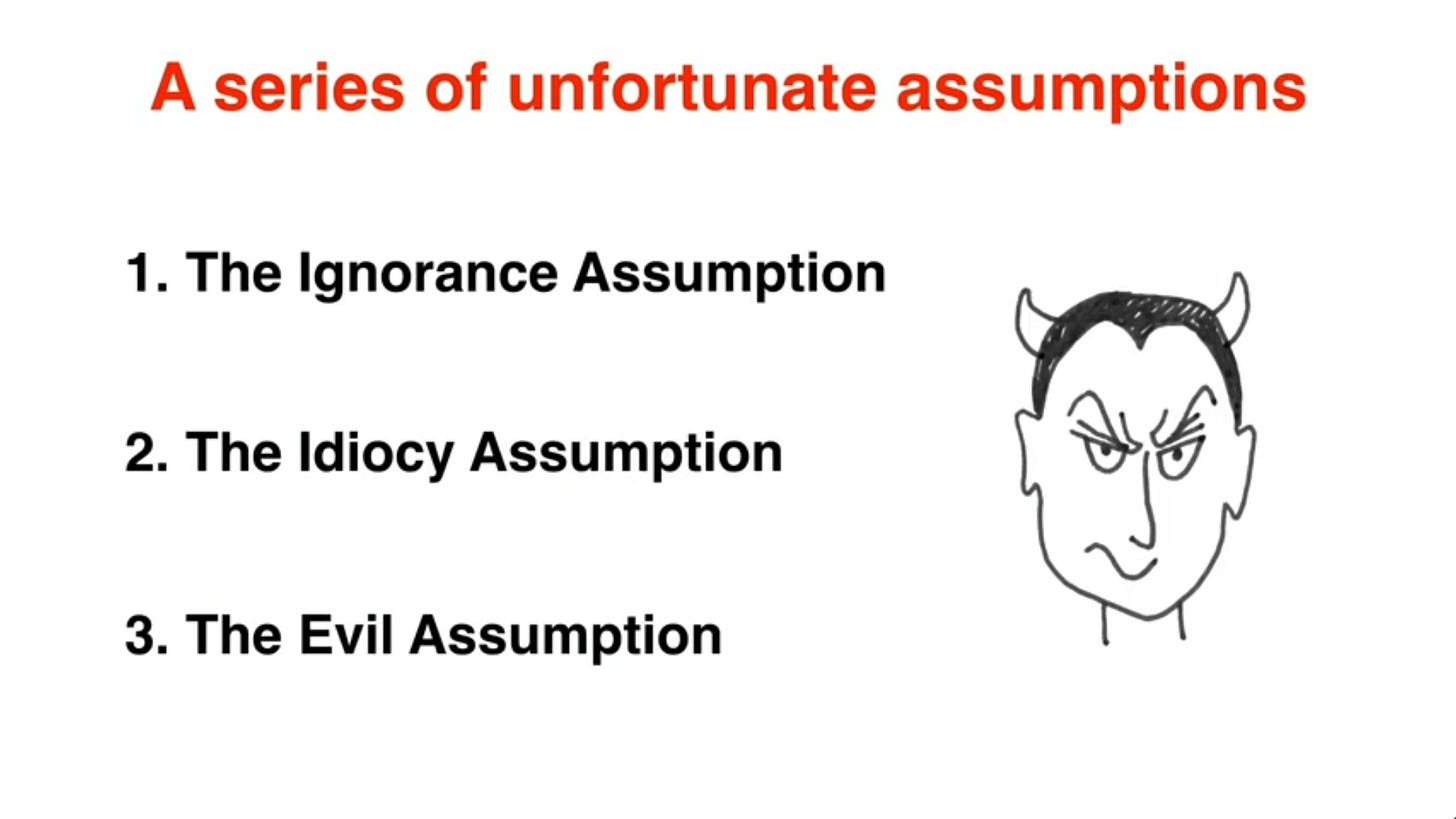A few years back, I had helped a friend with a business model canvas for his startup. I had worked hard in taking his idea and doing the research to put together a business plan that I really believed in.
While reviewing it, we had a strong disagreement. My friend poked holes on some critical areas but instead of focusing on what’s right, I was focused on who’s right. My friend opined that I needed to learn how to respond when someone disagreed with me. While there could have been some bike-shedding effect, my friend was right.
But how do you really respond when someone disagrees with you?
A starting point for me was to realize where I was wrong.
Like most, if not all of us, I tended to always focus on being right and how to get things right. Rethinking my assumptions/attachments to my ideas could have delivered a better outcome. I, like all of us, obviously don’t enjoy the feeling when I realize that I am wrong.
Kathryn Schulz has extensively researched on being wrong. Everyone of us confuses our models of the world (aka beliefs) with the world itself - not occassionally or accidentally but necessarily. When someone challenges our belief systems, a cascaded series of assumptions prevent us from responding well.
1. The Ignorance Assumption
The first thing we usually do when someone disagrees with us is that we just assume they are ignorant.
We think our own beliefs are based on facts, and conclude that people who disagree with us just haven’t been exposed to the right information, and that such exposure would inevitably bring them over to our team.
So, we end up generously sharing more information with them hoping that they are going to see the light and agree with us.
2. The Idiocy Assumption
Here, we concede that our opponents know the facts, but deny that they have the brains to comprehend them.
When it turns out those people have all the same information and they still don’t agree with us we think they’re idiots. They have all the right pieces of the puzzle and they are too moronic to put them together.
3. The Evil Assumption
When the ignorance and idiocy assumptions don’t work, when it turns out that people have all the same facts that we do and they are pretty smart we move onto a third assumption. They know the truth and they are deliberately distorting it for their own malevolent purposes.
The idea that people who disagree with us are not ignorant of the truth, and not unable to comprehend it, but have willfully turned their backs on it.
Our attachment to our own rightness…
…is a catastrophe. It prevents us from preventing mistakes when we need to and causes us to treat each other terribly. Bottomline, don’t let your ego subconsciously work to protect you from others who don’t entirely agree with you. Focus on what’s right, not who’s right.
Here’s Kathryn’s insightful talk:
Until Next Time,
Keshav :)




